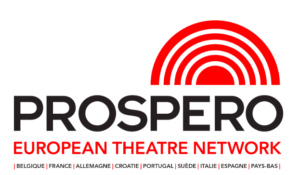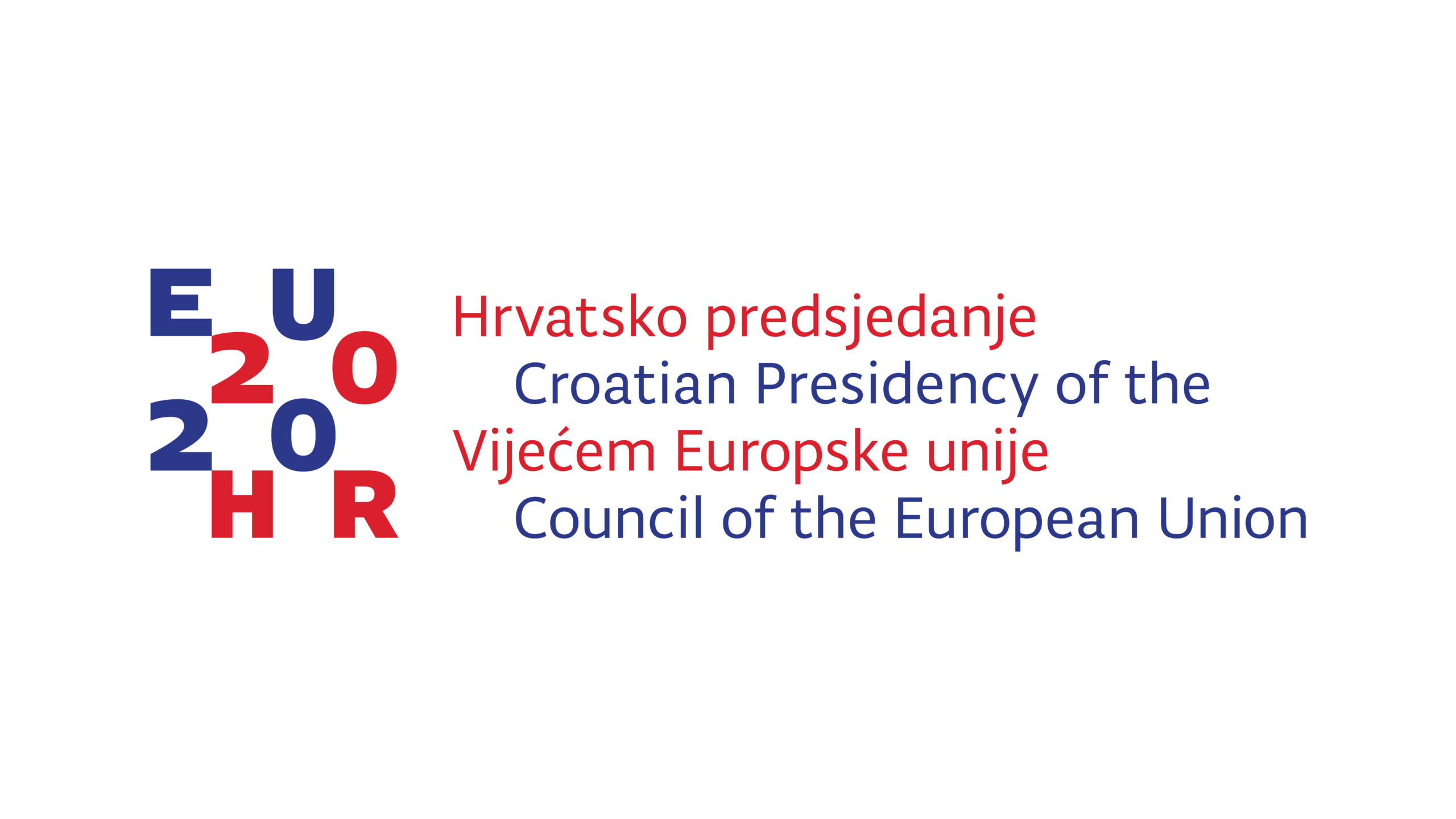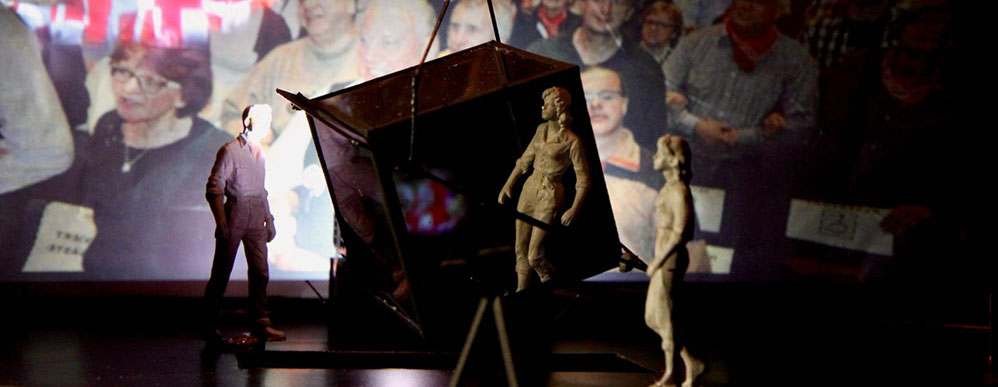by Slavoj Žižek
directed by Angela Richter
dramaturg Mirna Rustemović
translation Sara Polidoro
set Peter Baur
video Jonas Link
sound design Bojan Gagić
costumes Silvio Vujičić
with (in alphabetical order) Luca Anić, Mislav Čavajda, Tesa Litvan, Vanja Matujec, Iva Mihalić, Kristijan Potočki, Alma Prica, Tin Rožman, Alen Šalinović, Barbara Vicković, Filip Vidović, Silvio Vovk, Matic Zakonjšek
production Croatian National Theatre of Zagreb (Croatia), Théâtre de Liège (Belgium), Emilia Romagna Teatro Fondazione (Italy)
in the frame of Prospero – European Theatre Network 
main sponsor![]()
Antigone is part of the cultural program of the Croatian Presidency of the Council of the European Union 2020

length 1h 10′
Italian première
in Croatian with Italian surtitles
My idea was simple: handle Sophocles’ version as an individual shard of broken jug and tessellate it with other shards, in the hope that this process might make it possible to realise some sort of truth. (Slavoj Žižek)
The classic tragedy by Sophocles about Antigone, a young girl who resists the laws of the ruling class when she decides to bury her brother Polynices, in Žižek’s interpretation becomes a topical and contemporary work examining social and political relationships between those in government and citizens, between the divine and earthly law. In his new rendering of a classic theatrical model, Slavoj Žižek reaches for the principle of the triad (meaning: triás – a principle of the trinitarian unity of thesis, antithesis and synthesis): in his version of Antigone, which he outlines as an ethical-political exercise in the manner of Brecht’s didactic pieces, Žižek offers three possible endings for this tragedy, leaving the audience the freedom of deciding the fate of a modern-day Antigone. A thorough analysis of Europe as a system today would open up a view of the Euro crisis, the refugee crisis, Brexit, austerity, the tightening of border controls, the building of fences and isolationism, various infiltrations and the atmosphere of fake news – a view of a world threatened by the disintegration of Europe. The evening at the theatre with Antigone opposes this sinister scenario with a pan-European answer. If Slavoj Žižek addresses the issue of which type of, and which, Antigone could justly (objectively) judge the circumstances of our time? Antigone, who, one might think, oscillates between the two extremes of traditionalist and fundamentalist: unconditionally, she insists on a symbolic demand, citing “custom and ancient laws of the gods.” For Creon, however, these laws are not valid because they are not the product of a legislative process by the state. Antigone, on the other hand, does not need such a constitutional form, and her faith alone is enough. And when the ritual fails at its completion, Antigone remains only the suicide as the last symbolic gesture. In this post-political world, whose defining feature is the consensus, is the only position of genuine dissent left is, that of the traditionalist (who is clinging to the past and refusing to accept the inevitability of the new global neoliberal order) or the fundamentalist? So how is rebellion still possible today?
Angela Richter’s production wants to encourage thought about how it would be possible to reawaken the political spirit in the form of a politics for those who have no voice in this Europe of crisis and upheaval. This premiere affirms the Croatian National Theatre in Zagreb as one of the centres of innovation in European theatre.
Slavoj Žižek and Angela Richter, biographies
Slavoj Žižek
Slavoj Žižek is a Slovenian philosopher and writer. He was born in Ljubljana in 1949 and has made an important contribution to political theory, film theory and theoretical psychoanalysis. He won international recognition as a social theorist with the publication of his first book The Sublime Object of Ideology (1989). He is one of the world’s most famous intellectuals and philosophers. He is a senior researcher at the Institute for Sociology and Philosophy at the University of Ljubljana in Slovenia and also a professor at the prestigious European Graduate School. As a visiting professor, he teaches at a number of most prestigious universities in the United States and England. He has been a member of the Slovenian Academy of Sciences of Art from 2005. Antigone is his first dramatic work.
Angela Richter
Angela Richter was born in 1970 in Ravensburg. Richter studied theatre directing at the Academy of Music and Theatre in Hamburg. Since 2001 she has worked as a director. In 2001 she founded the Fleet Street Theatre in Hamburg which she ran until 2010, and house director from 2013 to 2016 at the Cologne Theatre. In the season 2014/15 Richter scheduled a large-scale project entitled Die Avantgarde der Supernerds in coproduction with German national TV WDR, dealing with the life and work of digital dissidents and whistleblowers. In order to deeply understand the topic she met Edward Snowden in Moscow and Julian Assange in London, along with several other Whistleblowers. As the starting point of her work she typically uses discussions about certain topics, connecting various media within the theatrical production. The staging of Žižek’s Antigone is her Croatian directorial debut.



